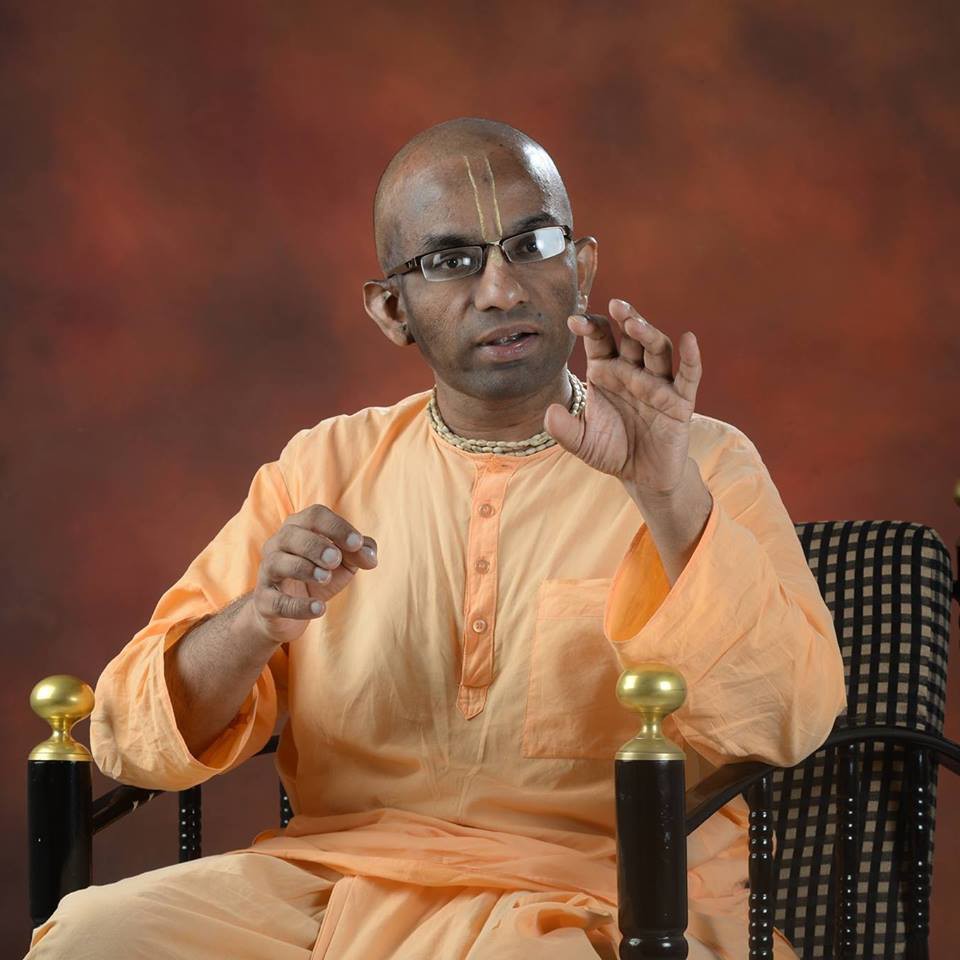
By Caitanya Caran Das
A two inch tongue can kill a six feet man. This traditional saying is being confirmed by modern obesity statistics. The prosperity of the Indian middle class is showing up – in a not-so-pleasant way in the burgeoning waistline, of over 25% of urban Indians. Obesity is the cause of diabetes, hypertension, heart attacks, strokes and a variety of other chronic diseases. Unlike infectious diseases which are curable, chronic diseases need lifelong care, leading to enormous expenditure.
The same trend is seen globally. Obesity, if left unabated, is set to overtake smoking as the number one cause of preventable death in USA.
Another striking statistics: World Health Organization (WHO) statistics show that over 1 billion people are overweight globally as compared to the 800 million starving. In other words, more than the people suffering due to starvation are the people suffering (or set to suffer) due to overeating. Here is the crowning irony of the conflict between the haves and the have-nots: losers suffer due to lack of food and winners suffer due to lack of self-control!
Some experts state that unhealthy eating habits – caused largely by aggressive advertising of fast foods – are behind the obesity epidemic. So they suggest that increased nutritional awareness and change of food habits can check and reverse obesity. These will certainly help as symptomatic treatment, but will they go to the root of obesity? Why do people overeat? Or eat junk food? Is it because they don’t know the consequences? More often it’s because the food tastes good and they don’t want to lose the enjoyment. Here we confront a familiar and exasperating human dilemma: Why does most enjoyment turn out to be unhealthy, even hazardous? Smoking makes us prone to lung ailments, drinking to liver problems and promiscuity to AIDS and other STDs.
Is our heart’s longing for happiness never to be fulfilled?
Obesity and all other indulgence-induced problems originate from the presumption that material enjoyment is the only enjoyment available to us – and so we must have it, whatever the cost.
But the Vedic scriptures – and indeed all the great spiritual texts – inform us that this presumption is a misconception. We are intrinsically spiritual beings. Our deepest fulfillment comes from having a satisfying relationship with God. The unlimited inner happiness thereof is our birthright, but being spiritually uninformed, we are searching in vain for that infinite happiness in the realm of finite matter.
Most people assume that they can’t enjoy life because they don’t have enough money. But obesity statistics show that, even if they get all the money in the world to eat whatever they like as much as they like, still they will not be able to enjoy unlimitedly because their body limits their capacity to enjoy – inescapably. Therefore Shrimad Bhagavatam ( 1.2.10) asserts that harmonious healthy living requires that we seek food for nourishment – and enlightenment for fulfillment. We can experience spiritual fulfillment through prayer, meditation – and especially by chanting the holy names of God. A person using a candle for illumination switches it off as soon as dawn arrives. Similarly, we will eschew sensual indulgences once spiritual enlightenment dawns in our heart – not reluctantly, but joyfully, because a superior source of happiness will be accessible to us. When we get the first taste of devotional joy, then self-restraint will cease to be an exercise in self-denial; it will become a welcome catapult for our further spiritual
enrichment
The obesity problem is a timely reminder to direct our quest for happiness inwards, not only for our spiritual fulfillment, but also for our physical health – and the survival of our starving fellow humans. Lest we shy away from a spiritual solution and seek a material palliative instead, Albert Einstein’s verdict on problem-solving can prod us on, “Problems cannot be solved by the same level of thinking that created them.”
Source: http://www.dandavats.com/?p=2202
Comments
Dandavat Pranam Prabhuji, Hare Krishna.
Hari Bol. Hari Bol. Hari Bol.
We are intrinsically spiritual beings. Our deepest fulfillment comes from having a satisfying relationship with God.
We must have Diet – eating only Krishna prasadam.